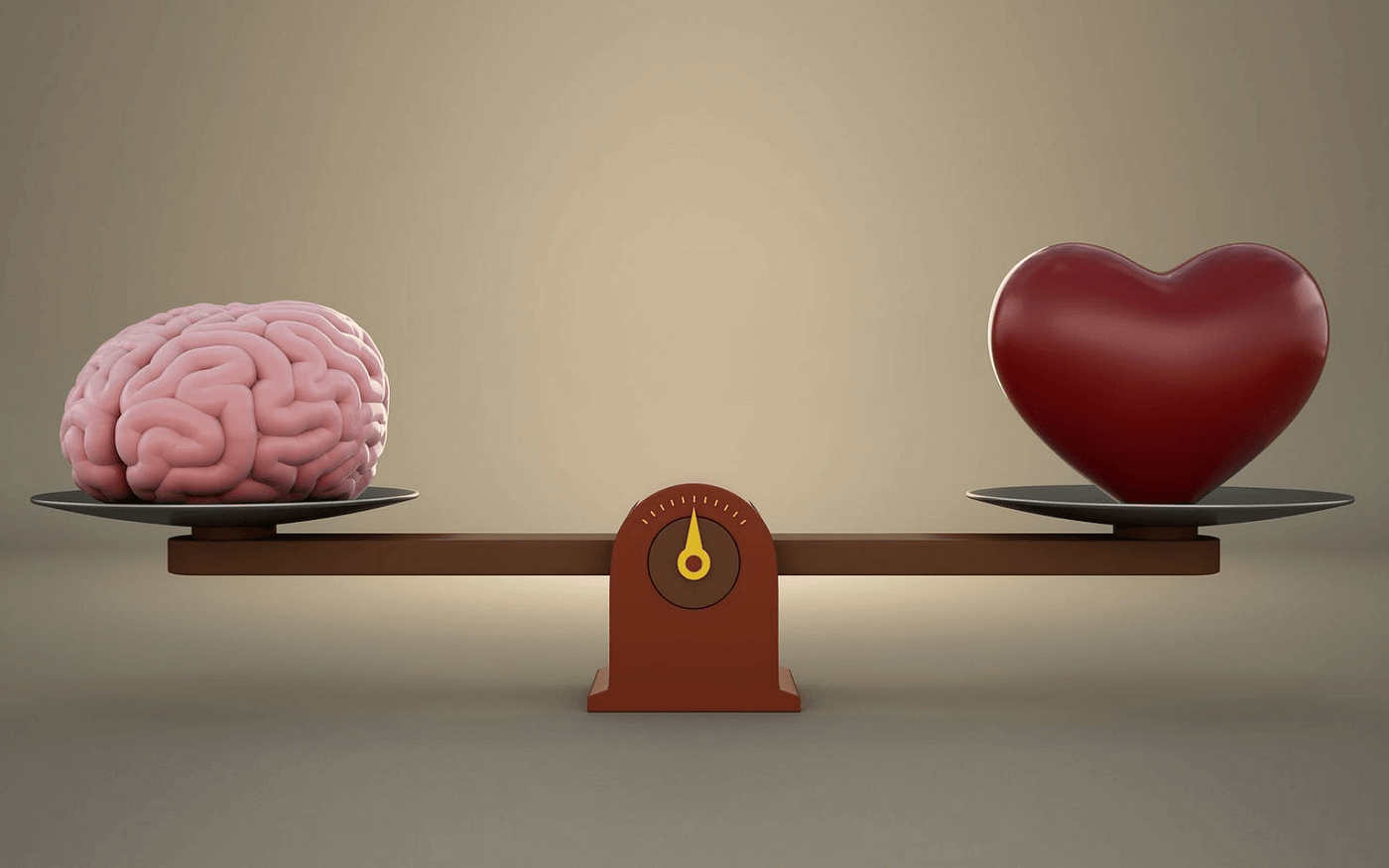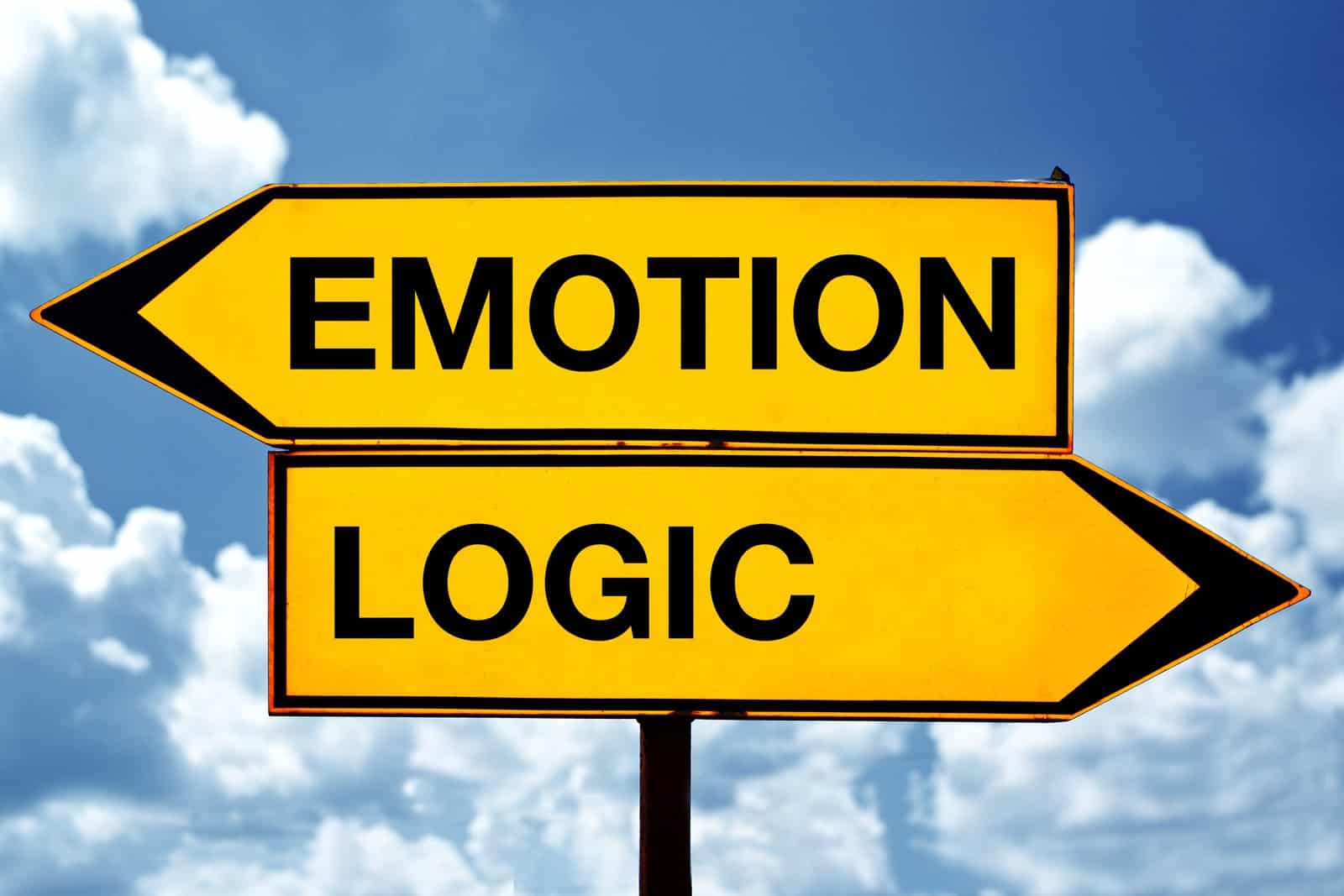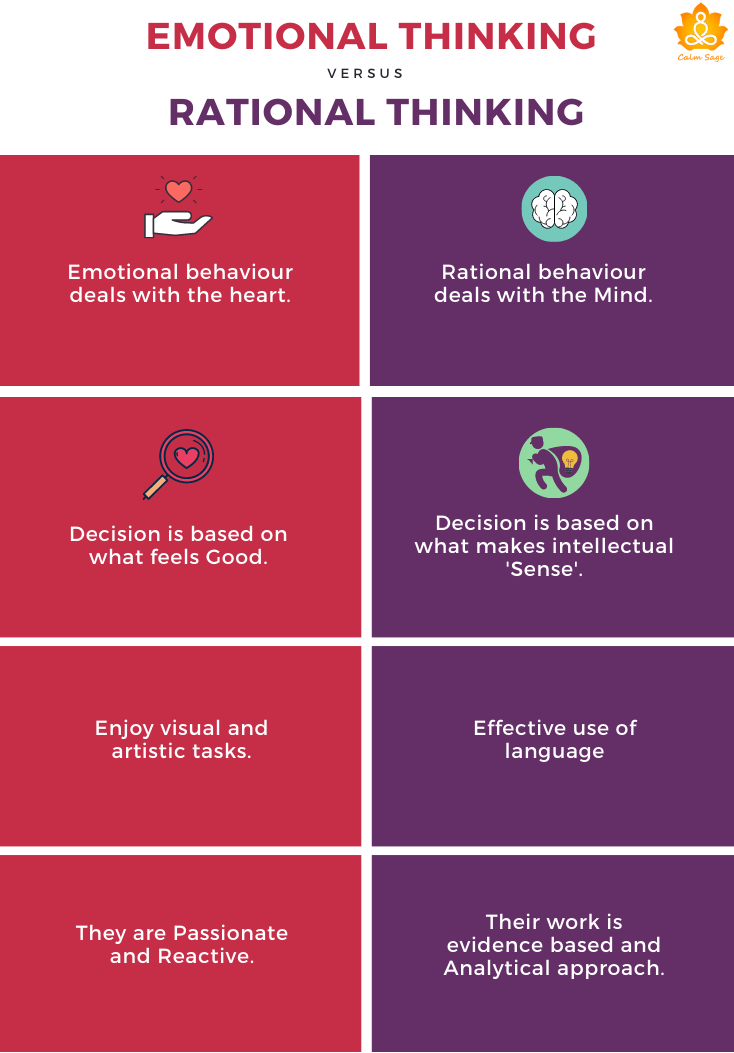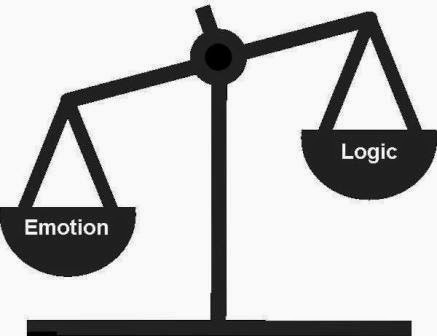Emotions vs Logic who win? - 6 minutes read
Which would you use to persuade your customers to take action: emotion or logic?

If you're ever faced with having to make a decision between an option that appeals to your heart and one that appeals to your head, what would win out—your emotions or your logic?
If you're like most people, it's likely your emotions would be the winner. The thing is, most people don't even realize this is happening in their own minds—and they wouldn't want to if they did!
After all, there are certain decisions we really don't want to overthink. For example: let's say you go shopping for shoes because you need new ones right away.
You can either choose a pair of shoes at random or find something that fits your personal style (and makes sense) instead.
But when it comes down to making purchasing decisions online or offline, who do we tend to trust more often—our gut reactions or our rational ones?
Why do we buy on emotion?
As humans, our emotions are what drive us to make decisions and take action.
In fact, the more emotion you put into your marketing campaign and product or service, the more likely you are to create an emotional connection with your customers.
However, it's important to keep in mind that emotions can be good or bad;
they can lead us toward making smart decisions that help us achieve our goals or they can lead us toward making poor choices that negatively affect us and others around us.
For example:
- A company advertises its new product with a humorous video of someone eating bugs while wearing a goofy costume (emotional). This video may get viewers interested in trying the product but isn't necessarily good enough on its own to convince them that it's worth buying (logical).
- Another company takes out advertisements featuring pictures of happy families using their products together as one unit—the family dog included! This type of advertisement might appeal more strongly than words alone would have done because there are no actual words being used at all!
Emotional targeting sells.
Emotional targeting is a powerful tool that can be used to sell products and services. It’s a science, and it works.
But it’s not easy to do. You need to know your audience and what they want.
You need access to data that shows you who they are, where they go online, what they read, and what they buy.
And then you need to figure out how all those things relate back to your business so that you can identify the right people for your marketing campaigns.
Emotions are gut reactions, while logic takes time to process.

When it comes to making a decision, we’re more likely to rely on our emotions than logic.
This is because emotions are immediate and often subconscious, whereas logic takes time to process.
Emotions are also based on past experiences, while logic relies on facts and figures.
We tend to use emotion when making decisions like choosing a new car or selecting an insurance company because they're often difficult choices that require us to weigh multiple factors simultaneously.
While there's a place for both emotion and logic in decision-making processes (it's impossible for someone in our position not to be swayed by their own personal preferences),
we'd like you to think about which approach suits your business best!
Emotions often trump logic.
Emotions often trump logic. If you’ve ever had a friend or family member try to persuade you of something by telling you how they feel about the matter and why it’s important,
then you already know this. Emotional appeals have been proven to be far more effective at influencing human behavior than logical ones.
This is not because humans are inherently irrational, but rather because our brains are designed for fast thinking and quick decision making.
Logic takes longer to process than emotion, which means that when faced with two choices (or one really good choice),
we often go with the one that feels right even if it makes no logical sense whatsoever.
Regardless of how you make decisions, knowing why you do it is important.

Regardless of how you make decisions, knowing why you do it is important.
Understanding your decision-making process can help you learn from your mistakes, and make better choices in the future.
It also gives you insight into what kind of information your brain needs to feel good about a choice.
Since emotion wins out over logic when making business decisions, your marketing efforts should aim to appeal to both emotions and logic (and not just one or the other).

If you're looking to make a sale on your product or service, you should appeal to both emotion and logic.
Don't take this as an excuse to go all-in on the "emotion" side of things.
Though it's true that emotion is more powerful than logic when it comes to making decisions, there's still a place for rational thought in your marketing efforts.
As with any decision-making process, both sides play an important role in determining which path leads you in the right direction.
The truth is, emotions are always going to be involved when we make buying decisions—that's just how our brains work!
Even if we aren't consciously aware of them, our emotions affect us every day and play a big role in how we approach tasks like buying products online.
However, there are many instances where logic plays an equally important role (or even more so) than feelings;
think about some things that don't lend themselves well toward emotional appeals: taxes and insurance premiums come immediately to mind!
So why should business owners spend more time focusing on their emotions?
Conclusion
As you can see, there is no right or wrong answer to this question.
What matters most is that you understand how and why you make decisions so that you can be more effective in reaching your audience.
Ultimately, emotions are a powerful tool for getting what you want out of life.
If you're interested in learning more about how to use emotion in your business strategy, check out this collection of audiobooks on The Psychology of Persuasion.
Click here 👉 https://amzn.to/3RnGtrP
PS: Remember your first audiobook is FREE when you register for the 30-day free trial and the best part you can choose from a huge variety of choices...